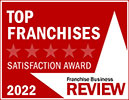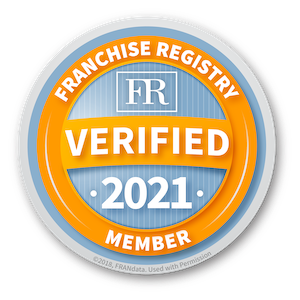12 Ways Low Overhead Franchises Save You Money

When thinking about starting your own business, one of the factors to consider is the amount of overhead that comes with the business. This is important because higher overhead costs usually mean a higher cost to operate.
Franchises offer stability in this area with a proven franchise model. However, franchises can also have high overhead (and high operating) costs. Here’s what you need to know about these costs and how a low-overhead franchise can be advantageous.
Overhead costs and operating costs
There are two key areas of costs in a business — overhead costs and operating costs. Overhead costs are ongoing costs that you pay even if you don’t sell anything. Examples of this include rent, accounting, software, insurance and utilities. Operating costs are expenses that are necessary to run your daily business operations. An example would be fuel and maintenance on vehicles.
Businesses with low overhead or low operating costs have advantages that result in more money in your bank account. Here’s a look at some key benefits:
Advantages of a low-overhead franchise
Low overhead can make a big impact on the bottom line of any business. For example:
- Building costs. Buildings have significant overhead costs attached to them. These include rent, insurance, property taxes, loan payments, mortgages, maintenance and utilities. With a building, you pay these costs whether or not you’re earning any revenue. Without a building, you save tens of thousands of dollars a year.
- Low startup costs. When you don’t need to invest in build-out costs for a brick-and-mortar location, the cost to launch the business is much less. Those funds can be reallocated to other areas of your expenses to get started.
- Faster launch. A low overhead business usually means it takes less time to launch the business because there’s no searching for locations, renovation or other projects that can take time to accomplish.
- Staffing costs. Less overhead means you can operate the business with fewer employees. Staffing is a significant cost, and when you have lower overhead, you have more flexibility on when to add staff.
- Manageable debt. Overhead takes a lot of money, and whether you’re self-financing or using a lending option for financial support, the more debt you incur, the less net profit you make until that debt is repaid.
- Payback period. The franchise fee is a payment that allows the franchisee to access the licenses, branding and intellectual property of the franchisor and use their proprietary elements (logos, training, software). When a franchise has low overhead, a franchisee can redirect money usually used for overhead expenses into paying back the initial fee.
- Easier to expand. When there are fewer things to organize to launch the business, the opportunity to expand your business is much easier. Without having to source locations, secure more personnel and manage additional loans, it’s less prohibitive to scale the business, which increases your growth potential.
Low overhead and mobile: a win-win
A common example of a low-overhead franchise is a mobile franchise — a business that goes to the customer instead of waiting for the customer to walk through its doors. An example of a mobile, low-overhead franchise is Floor Coverings International (FCI). Here are some additional benefits:
- Lower cost. Mobile franchises are usually a lower cost to launch. The total cost of an FCI franchise is $165,400-$235,100 with $65,000 attributed to the franchise fee and territory fee.
- Your own schedule. With an FCI franchise, you book appointments to see customers at their homes. You are not restrained by a regular workday schedule.
- Start with brand power. If you started a mobile business from scratch, it would be much more difficult to build a customer base. However, FCI has the brand recognition and visibility to accelerate your business as a mobile franchise with more than 200 locations across North America.
- Streamlined operations. FCI franchisees are focused strictly on flooring. The franchise package includes a designer to help homeowners choose from 3,000 products to complement their rooms. This is all we do as a niche market franchise of the $26.8 billion custom flooring industry.
- Get launched fast. You can be operational in your FCI franchise in 60 days. That includes full training, business coaching, marketing support and leadership.
FCI can be your business
The home improvement industry offers plenty of opportunities for investment. FCI franchisees averaged $1.2 million in gross annual revenue in 2021, according to our Franchise Disclosure Document (FDD).* A low overhead business can be a profitable business, even in an industry that is usually burdened by high overhead costs.
To learn more about the FCI franchise opportunity, request our franchise information report.
*See Item 19 of our current FDD for details.





